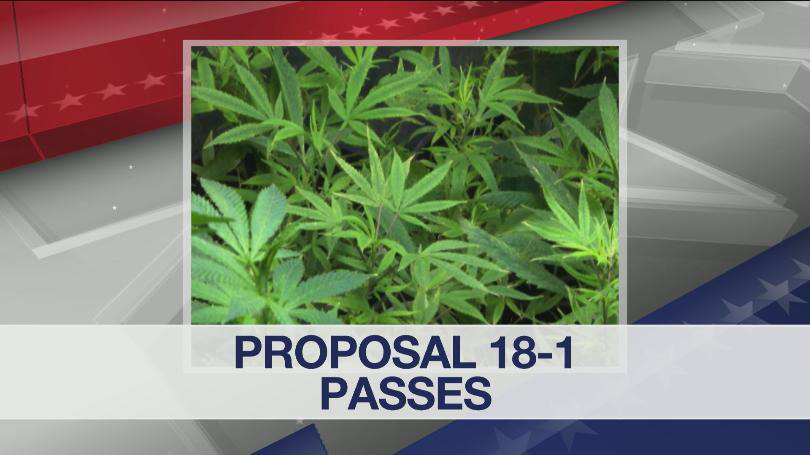By Travis Halsted, Loss Control Consultant
Election Day 2018 has come and gone. A new governor was elected and several important issues were settled. While each item that was voted on holds a level of significance to many, one particular item has left companies from every industry scratching their heads. Proposal 1’s passage has provided more questions than answers, but I hope that I can help clear up some of the questions that you may have. Although Michigan voters passed the proposal to legalize marihuana for adult recreational use, employers can still “just say no” to hiring or retaining employees who violate workplace drug policies. The spelling of Marihuana versus the more common marijuana spelling dates back to the Marihuana Tax Act of 1937. Michigan utilized the federal spelling at that time, which was Marihuana. An act of Michigan Legislature is required in order to change the spelling to the informal spelling (marijuana), administrative rules will be using an “h” in the spelling.
Technically, what does Proposal 1’s passage mean?
Proposal 1 states that adults, age 21 and older, can possess up to 2.5 ounces of marihuana on their person or up to 10 ounces in their home, most of which will have to be secured. Additionally, adults can grow, but not sell, up to 12 plants in their home for personal use. Michigan is the ninth state to legalize marihuana (AK, CA, CO, ME, MA, NV, OR, and WA). Remember, however, that marihuana remains illegal under federal law.

What does this mean for my workplace?
Potentially the largest question that comes with this passage is, what does it mean for my workplace. Proposal 1 does not affect an employer’s ability to terminate an employee for a positive marihuana test performed in accordance with company policies. Even if the employee has a medical marihuana card, the employer still has a right to terminate employment because nothing in Michigan’s existing medical marihuana laws or Proposal 1, changes the State’s normal rules concerning employment and drug screening.
Proposal 1 specifically provides that:
- Employers are not required to “permit or accommodate” marihuana use or possession “in any workplace or on the employer’s property.”
- Employers are not prohibited from “disciplining an employee for violation of a workplace drug policy or from working while under the influence of marihuana.”
- Employers are not prevented from “refusing to hire, discharging, disciplining, or otherwise taking an adverse employment action with respect to hire, tenure, terms, conditions, or privileges of employment because of that person’s violation of a workplace drug policy or because that person was working while under the influence of marihuana.”
- Federal regulations, such as DOT regulations for CDL holders are not changed.
Although there will be legal challenges, it is believed that employers may still have policies that say what is, and what is not, acceptable workplace behavior, including the maintenance of zero-tolerance policies for their workforce.
So what can you do? What should you do?
Evaluate. An effective place to start is to evaluate your current policy language. The evaluation should include the reconsideration of any wording of “illegal drugs”. As marihuana is no longer an “illegal drug”, in the state of Michigan, it would be beneficial to include marihuana by its own name or other wording. Furthermore, the review of your policy should include what your stance is for being “impaired” while working and to encourage other employees to report any suspicious behavior by other employees.
Another aspect to consider is at what time you will conduct testing. Will your testing be completed pre-employment, post injury, under suspicion/reasonable cause and/or at random times? In regards to testing, you should consider what form of testing that you will be conducting. Given that there is currently no accurate, on-demand impairment test for THC, you should evaluate what testing method (e.g., hair, urine, oral fluid) your organization will use to test for THC.The penalty for positive tests must also be something that is identified and conveyed. You should consider the balance between safety and staffing when evaluating current policies, and determine whether your organization will retain a “zero tolerance” policy. If you do maintain a “zero tolerance” policy then you should determine what your disciplinary measures are for being impaired while on the clock and/or upon positive results of a THC test. MTMIC is currently working on a sample “zero tolerance” policy that will be available for your use. That should be available at the beginning of 2019.
Communicate. As employers, you need to be clear about your expectations. Once you have considered your stance regarding the testing, discipline, and other factors regarding the use of marihuana, you should communicate that stance to all of your employees. Furthermore, you should communicate that workplace safety, employee productivity, and organizational liability are of paramount importance to the organization, and it is with that backdrop that the organization has considered how the passage of Proposal 1 may impact its prohibited substances policies. If you already have a substance abuse policy in place, it would be beneficial to reiterate that policy to all employees and conduct a “retrain” on your company’s stance on this matter.
While this is uncharted territory for all employers, I believe that your partnership with MTMIC can lead you on a path to gaining all of the answers that you may need. I strongly encourage you to contact your Loss Control Consultant if you have any further questions.






